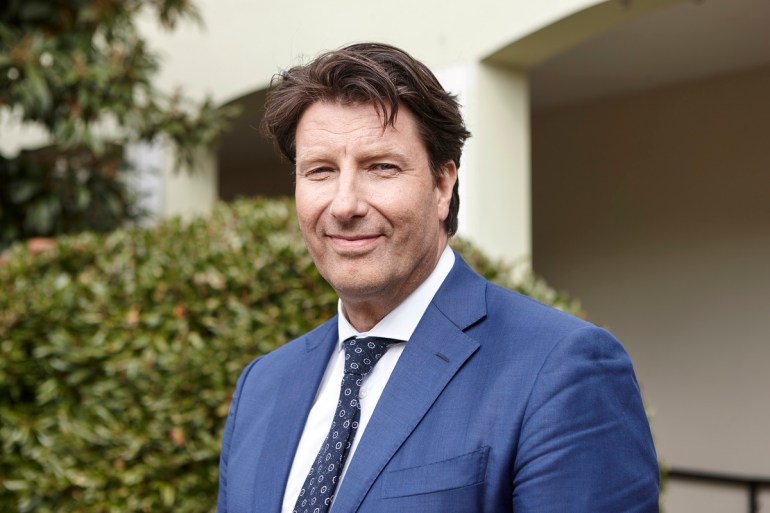National Film and Sound Archive (NFSA) CEO Jan Müller has announced his resignation after three and half years, with the executive to return to the Netherlands to be with family.
Müller was appointed to lead the NFSA in 2017, with the board drawn to his expertise in digitisation. He joined from the Netherlands Institute for Sound and Vision – one of Europe’s largest audio-visual collections.
Between 2015-2017 the archivist had also been chair of the Europeana Foundation, an institute that houses over 50 million digitised items from museums, libraries, archives and collections across Europe.
During his tenure, he has led the development and implementation of the NFSA’s strategic vision for a digital archive, and helped to secure an additional $5.5 million in funding from the Federal Government that should allow it to meet the 2025 deadline to preserve the magnetic tape collection before it is lost forever.
The executive has also prioritised public engagement with the NFSA’s collections, and widened the organisation’s collecting remit to include video games, web video, VR and other types of audiovisual media.
Notably, Müller also spearheaded a pilot to encode and preserve moving image on synthetic DNA for long-term archival purposes.
Working in partnership with the Olympic Foundation for Culture and Heritage (OFCH), the NFSA preserved footage of Cathy Freeman’s 2000 Sydney Olympic gold medal race via this method, with the footage then projected onto the Sydney Opera House as part of a 20th anniversary celebration in September.
During his time in Australia, Müller has also served as inaugural chair the Media Literacy Alliance, been a member of the Australian Broadband Advisory Council, and sat on the advisory board of the Centre for Media History at Macquarie University.
Müller said leaving the NFSA had been a difficult decision, given the strong bonds he had formed.
“I have been privileged to work with a great team at the NFSA and in the GLAM [galleries, libraries, archives, and museums] sector. Together we have achieved a massive transformation of the institution, since I was appointed to the role in July 2017.
“It has been immensely rewarding to be CEO of such a wonderful, internationally-recognised institution but I feel that I must, in these new circumstances, be with my family.
“I look forward to staying involved. I would also like to thank for their support our Minister, the Hon. Paul Fletcher MP and his staff, the Office for the Arts, our Board, our many friends in the Australian cultural sector and, of course, the extraordinary team at the NFSA.”
NFSA chair Gabrielle Trainor said: “We are disappointed, but understand Jan’s decision. The COVID-19 pandemic has limited his ability to travel to spend time with his young family to the extent that had been possible in the past years.
Trainor told IF that Müller had done an “extraordinary job” not only in leading the archive, but within the sector more generally. In particular, she notes his collaboration with other organisations across the sector in co-operative digitisation and access efforts.
“He’s set us up for success. We’ve got a very solid foundation,” she said.
It is her hope that the NFSA will still be able to draw down on his expertise into the future, noting that his international experience had added enormously to the presence and direction of the archive.
Overall, she says that over the past few years, the transformation of the NFSA has been “remarkable”, driven by a desire to be relevant to both industry and the general public alike.
“Archives used to be – and we were no exception – very inwardly focussed, and he preservation and collection aspects were paramount in the culture of these organisations.
“But I’ve always said the NFSA is sits at the sweet spot of digital technology and culture because our collection, above all national collecting institutions collections, is so amenable to digitisation. So we’ve turned ourselves inside out in the past the past years, focusing on access to the collections, particularly through digitisation, but also through exhibitions and events.”
The recruitment process for a new CEO will begin in the new year. In the interim, COO Nancy Eyers will take on the role in an acting capacity.
Of Eyers, Trainor said: “She has an intimate knowledge of our digitisation program and our collection, and has been instrumental in developing our future strategy with Jan and the other members of our leadership group.”



